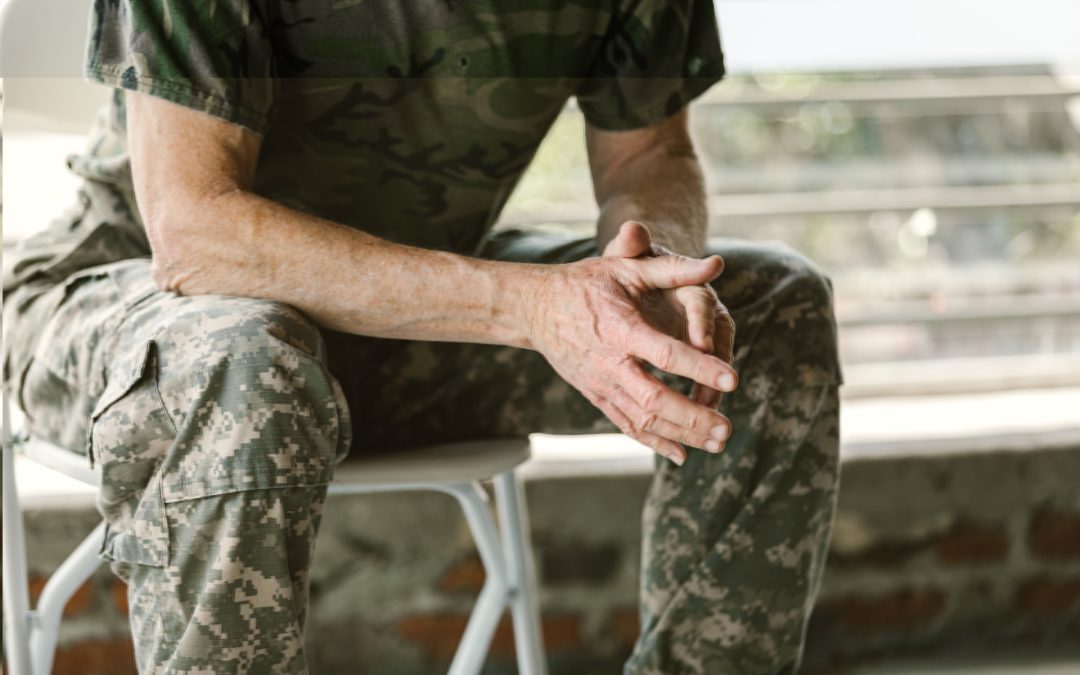The people who serve our country in the military often have experiences the rest of us can barely imagine. Those experiences, which are often traumatic, can make it extremely difficult for an individual to return to civilian life. Far too many of our veterans find themselves struggling with a range of mental health disorders and turning to drugs or alcohol as a way to manage physical and emotional pain.
Often, these vets are reluctant to seek out help. That reluctance may stem from a number of ideas related to military culture. For example, people in the military are taught to be strong and self-sufficient. They also learn to rely specifically on those who serve with them rather than on others—including civilians. This combination can lead a veteran to believe that no civilian therapist or physician can truly help them, and as a result, they must muddle through alone.
Obviously, those who make the decision to serve in the military deserve far better than a life defined by mental illness and substance use disorders. And they deserve care that fully takes into account the unique nature of their life experience.
That is why Wooded Glen Recovery Center is honored to provide specialized treatment for veterans via a program known as Tactical Recovery. We have partnered with the Department of Veterans Affairs Community Care Network and PsychArmor to create this detox and residential treatment program specifically for the military community.
Taking a Look at Tactical Recovery
A variety of treatment modalities are central to Tactical Recovery. Veterans in rehabilitation from a substance use disorder may benefit from eye movement desensitization and reprocessing (EMDR), cognitive-behavioral therapy (CBT), and dialectical behavior therapy (DBT). Motivational interviewing and a focus on 12-Step programming are also key parts of the program. In addition, family therapy is available to help the families of vets learn how best to support them.
Seeking Safety and SMART Recovery are also part of the Tactical Recovery program. The former is a treatment model for co-occurring post traumatic stress disorder (PTSD) and substance use disorder; the latter is an evidence-based addiction recovery program, the name of which stands for Self-Management and Recovery Training.
In addition, Tactical Recovery includes two veteran-specific small group meetings each week. Group therapy is a powerful tool in part because those who are involved tend to have common experiences—and therefore better understand and have compassion for one another. Tactical Recovery takes advantage of the shared experiences of veterans to reinforce the effectiveness of group therapy.
During the Tactical Recovery program, vets will learn a variety of skills including mindfulness practice, communication skills, and relapse prevention in addition to other life skills. The program also involves psychological education to help vets understand the underpinnings of certain behaviors.
When residential treatment comes to an end, Tactical Recovery’s support for veterans rolls on. Discharge is handled collaboratively with the Veterans Association or with command so that an individual’s next steps continue to support their sobriety and mental well-being. We also offer the private Tactical Recovery Alumni app that allows graduates of the program to stay connected and access support following discharge.
If You Are a Vet, You Will Not Regret Getting Help at Wooded Glen
As we have noted, veterans are sometimes extremely reluctant to seek out the help they need after they return to civilian life. But substance use and mental health disorders can truly upend a vet’s life—and the lives of those who love them. That is why it is so important to everyone at Wooded Glen Recovery Center that we offer a program that is carefully designed to meet the specific needs of those who have served in the military.
Vets (and all people we serve) can count on personalized care grounded in evidence, expertise, experience, and empathy. We will see you through medically supervised detoxification and our robust rehabilitation program—and then provide a continuum of care so that you can begin your recovery journey feeling supported and confident.
We will also address any and all co-occurring mental health disorders—like depression, anxiety, and trauma-based issues—that are intertwined with your substance use disorder. Whether a mental health disorder is contributing to or being worsened by a substance use disorder (or both), it is important to work on your mental health because it is foundational to your ongoing sobriety.

